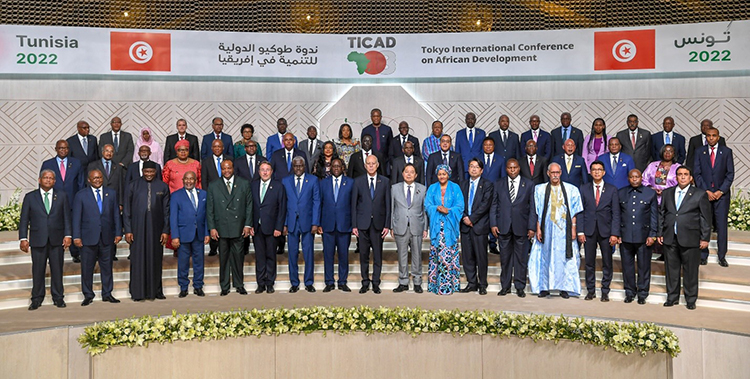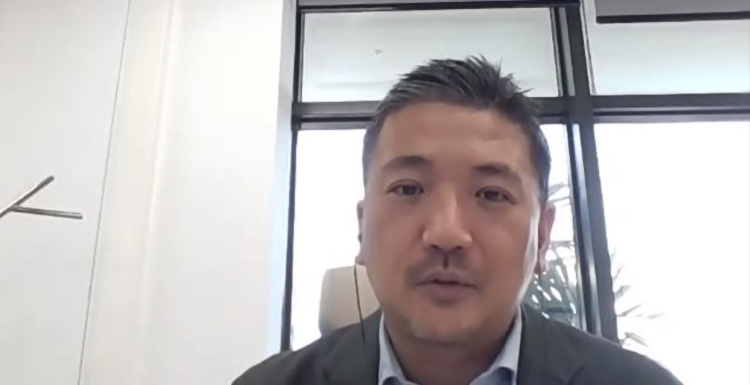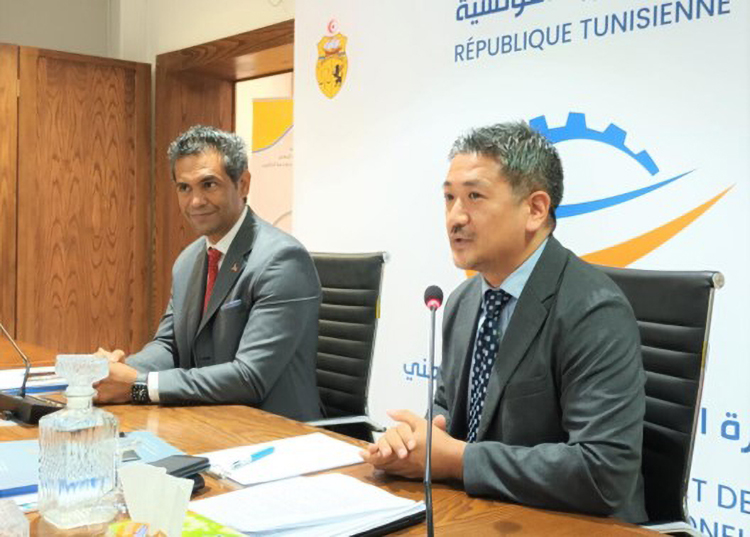Through TICAD8, Japan deepens its partnerships in Africa
October 5, 2022
The Eighth Tokyo International Conference on African Development (TICAD 8) was successfully held in the Tunisian capital of Tunis on August 27 to 28, with representatives from 48 out of 54 African nations in attendance. Among them were 20 African leaders at the head of state level, as well as officials from international organizations, the private sector and civil society. Japan was represented in person by Foreign Minister HAYASHI Yoshimasa acting as special envoy of Prime Minister KISHIDA Fumio, who participated online from Japan.
At the opening ceremony of TICAD8, Prime Minister Kishida expressed that Japan aspires to be "a partner growing together with Africa." He also said that "Japan will promote its initiatives with approaches quintessentially Japanese, focusing on "people." It is my hope that, through a virtuous cycle of growth and distribution, Japan will help realize a resilient Africa that Africa itself aims to achieve."
Japan pledged US$30 billion in public and private investment over the next three years, working in such areas as green growth, health, human resource development, regional stabilization, and food security. With regard to human resource development, Japan promised to contribute to capacity building by training 300,000 people across wide-ranging professions in industries that will support the future of Africa, health, education, agriculture, justice and administration.
Since 2019, when TICAD7 was held in Yokohama, the world has struggled with the fallout of the COVID-19 pandemic. The Ukraine-Russia conflict has also deepened crises in food and energy that are most acutely felt in developing countries. Climate change causes extreme weather conditions and frequent disasters.

The Eighth Tokyo International Conference on African Development held in Tunis
The Chief Representative of the Japan International Cooperation Agency (JICA)'s Tunisia office, UENO Shuhei, said that he saw "international cooperation, green growth, and enhancing resilience" as three key themes of the TICAD8 summit outcomes.

UENO Shuhei, Chief Representative at JICA Tunisia
"In a globalized interconnected world, it is impossible to ignore the impact of ongoing crises on Africa," Mr. Ueno said. "TICAD8 will probably have different values and meanings to different countries and individuals. But the opportunities arising from investment in human capital and sustainable growth will be crucial to enable Africa to unleash its potential. This merits for Africa but also for the world."
A business forum held on the sidelines of TICAD8 was attended by 200 business representatives, half from Japanese firms and half from businesses in Africa, Mr. Ueno noted, adding that such exchanges are necessary to grow connections and opportunities.
Being based in Tunisia, he observed that the country's successful organization of TICAD8 was proof that Tunisia can play a role as Africa's gateway -- not just for Japanese businesses but also for international cooperation. Mr. Ueno saw as merits Tunisia's geographic location as a conjunction of Africa, Europe and Middle East, and relative strength in human resources.
These benefits can then be expanded to the different corners of Africa through the African Continental Free Trade Area (AfCFTA) agreement and other economic frameworks such as COMESA (the Common Market for Eastern and Southern Africa), he said.
In terms of green growth, Mr. Ueno noted that African countries are vulnerable to Climate Change, suffering from droughts, floods and coastal erosions.
The Africa Green Growth Initiative launched by Japan at TICAD8 promotes investment to enable Africa's progress toward sustainable green growth, so as to address climate vulnerabilities while simultaneously taking note of national ownership to own development.
For Tunisia, where the south is arid, a priority would lie in securing water and its sustainable use, Mr. Ueno said, adding that pledges to achieve green growth can also benefit attracting foreign investment. He cited Morocco, where European automobile companies have set up factories following the country's embrace of renewables.
The COVID-19 pandemic has, meanwhile, laid bare the need to enhance resilience across Africa.
While Mr. Ueno acknowledged that this is a catch-all term that covers a gamut of aspects from universal health coverage (UHC) to education, infrastructure and the private sector, he said that a "holistic all-of-government approach is necessary to avoid blind spots that may arise due to sector-specific planning".
As a case in point, prevention and medical practices are important in the COVID-19 crisis, but these must be supported by other areas such as infrastructure - the roads and transport systems to ferry patients to hospitals - and education, including training for nurses and doctors. Patients must also know how to prevent and how to seek help, Mr. Ueno said. The private hospital and pharmacies also play an important role.
As the COVID-19 slows down, it is important to recover from the current pandemic as well as to prepare for the next possible one. Ensuring that the economy and society are resilient enough not be severely affected by such as shock is crucial.

At the TICAD8 related event on September 13, Mr. Ueno talked about JICA's Triangular Cooperation,
explaining that JICA and Tunisian agencies will start training courses for African countries in health
and environment in this year. He also discussed that the "KAIZEN", an approach to improve productivity,
could be taught to job seekers through training centers in Tunisia and triangular cooperations.
While it was unfortunate that the COVID-19 pandemic meant in-person attendance at TICAD 8 was smaller than for TICAD 7, Mr. Ueno said the reach had actually grown when online attendance was accounted for.
Beyond the main event, there were a series of side events that covered a wide range of topics from education to agriculture and healthcare to digital transformation. This hybrid format that the main and side event utilized, Mr. Ueno said, opens doors.
"We want to continue to reach as many and various people as possible and encourage them to think about how they can contribute to Africa in their own way," he said, adding that "TICAD can be an opportunity to reflect on African development and to engage to it."
Looking ahead to TICAD 9, which will be held in Japan in 2025, Mr. Ueno said it was impossible to prejudge what the key themes will be. The focus will be based on how far the outcomes of TICAD8 are implemented, as well as the prevailing issues of the day.
He agreed with Prime Minster Kishida's assessment of TICAD as a "process" rather than the objective. Mr. Ueno said: "The summit may be over, but the hard work continues."
Related Links
- [Press Release] The 8th Tokyo International Conference on African Development (TICAD8): Sharing JICA's efforts in Africa, a continent facing complex crises
- [Press Release] Conclusion of a Statement of Intent with JETRO, UNDP and UNIDO to Boost Support for Business Partnerships and Investment in Africa
- [Web article (French)] «Les contributions du Japon au développement vont aider le continent africain à surmonter les crises» | La Presse de Tunisie (External link)


